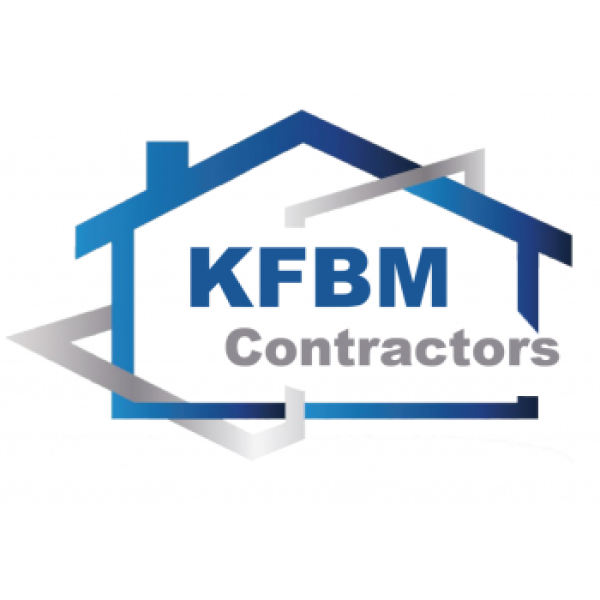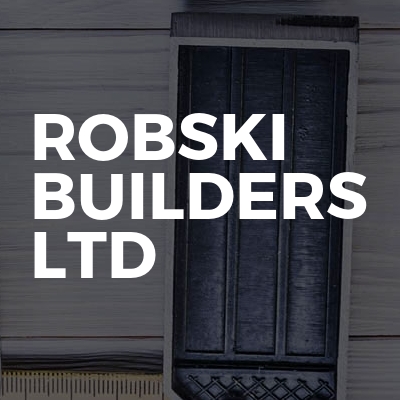Loft Conversions in Lynton
Filter your search
Post your job FREE and let trades come to you
Save time by filling out our simple job post form today and your job will be sent to trades in your area so you can sit back, relax and wait for available trades to contact you.
Post your job FREESearch Loft Conversions in places nearby
- Loft Conversions in Ashburton
- Loft Conversions in Axminster
- Loft Conversions in Barnstaple
- Loft Conversions in Bideford
- Loft Conversions in Buckfastleigh
- Loft Conversions in Budleigh Salterton
- Loft Conversions in Crediton
- Loft Conversions in Dartmouth
- Loft Conversions in Dawlish
- Loft Conversions in Exeter
- Loft Conversions in Exmouth
- Loft Conversions in Great Torrington
- Loft Conversions in Higher Dunstone
- Loft Conversions in Holsworthy
- Loft Conversions in Honiton
- Loft Conversions in Ilfracombe
- Loft Conversions in Ivybridge
- Loft Conversions in Kingsbridge
- Loft Conversions in Newton Abbot
- Loft Conversions in Northam
- Loft Conversions in Okehampton
- Loft Conversions in Ottery St Mary
- Loft Conversions in Paignton
- Loft Conversions in Plymouth
Understanding Loft Conversions in Lynton
Loft conversions in Lynton have become a popular choice for homeowners looking to expand their living space without the hassle of moving. This charming town, nestled in the heart of North Devon, offers a unique blend of historical architecture and modern living, making loft conversions an attractive option for many. Let's delve into the world of loft conversions and explore how they can transform your home in Lynton.
The Appeal of Loft Conversions
Loft conversions are a fantastic way to make use of the often-underutilised space in your home. They can provide additional bedrooms, a home office, or even a playroom for the kids. In Lynton, where property prices can be steep, converting a loft is a cost-effective way to increase your home's value and functionality.
Maximising Space
One of the primary benefits of a loft conversion is the ability to maximise space. Many homes in Lynton have spacious lofts that are perfect for conversion. By transforming this area, you can create a functional and aesthetically pleasing space that meets your needs.
Enhancing Property Value
Investing in a loft conversion can significantly enhance the value of your property. In a competitive housing market like Lynton's, having an extra room or two can make your home more appealing to potential buyers. It's a win-win situation, providing immediate benefits and long-term returns.
Types of Loft Conversions
There are several types of loft conversions to consider, each with its own set of advantages. The choice largely depends on your budget, the structure of your home, and your personal preferences.
Dormer Loft Conversions
Dormer loft conversions are one of the most popular choices in Lynton. They involve extending the existing roof to create additional headroom and floor space. Dormers are versatile and can be adapted to suit various architectural styles, making them a great option for many homes.
Mansard Loft Conversions
Mansard conversions are typically more extensive and involve altering the roof structure. They provide a significant amount of additional space and are ideal for homes with limited loft height. While they may require planning permission, the results are often worth the effort.
Hip to Gable Loft Conversions
For homes with a hipped roof, a hip to gable conversion can be an excellent choice. This type of conversion involves extending the roof's sloping side to create a vertical wall, thereby increasing the loft's usable space. It's a popular option for semi-detached and detached homes in Lynton.
Planning Permission and Building Regulations
Before embarking on a loft conversion project in Lynton, it's essential to understand the planning permission and building regulations involved. While some conversions fall under permitted development rights, others may require formal approval.
Permitted Development Rights
Many loft conversions in Lynton can be carried out under permitted development rights, meaning you won't need to apply for planning permission. However, there are specific criteria your project must meet, such as height restrictions and the type of property.
When Planning Permission is Required
If your conversion involves significant structural changes or your property is in a conservation area, you may need to apply for planning permission. It's crucial to consult with the local planning authority to ensure compliance with all regulations.
Building Regulations
Regardless of whether planning permission is required, all loft conversions must comply with building regulations. These regulations ensure the safety and structural integrity of the conversion, covering aspects such as fire safety, insulation, and access.
Choosing the Right Loft Conversion Specialist
Selecting the right specialist is vital to the success of your loft conversion project. In Lynton, there are numerous experienced professionals who can guide you through the process from start to finish.
Research and Recommendations
Start by researching local specialists and seeking recommendations from friends or family who have undertaken similar projects. Look for companies with a strong track record and positive customer reviews.
Assessing Experience and Expertise
When choosing a specialist, consider their experience and expertise in loft conversions. A company with a proven history of successful projects in Lynton will be familiar with local regulations and architectural styles.
Obtaining Quotes and Comparing Costs
It's wise to obtain quotes from multiple specialists to compare costs and services. Ensure that each quote includes a detailed breakdown of expenses, so you can make an informed decision based on your budget and requirements.
Designing Your Loft Conversion
The design phase is an exciting part of the loft conversion process, allowing you to personalise the space to suit your needs and style preferences.
Creating a Functional Layout
Consider how you intend to use the space and design a layout that maximises functionality. Whether you're creating a bedroom, office, or playroom, ensure the design meets your practical needs.
Incorporating Natural Light
Natural light can transform a loft space, making it feel open and inviting. Consider installing skylights or dormer windows to enhance the brightness and ambiance of the room.
Choosing the Right Finishes
Select finishes that complement the existing style of your home while adding a touch of personal flair. From flooring to paint colours, the right choices can elevate the overall aesthetic of your loft conversion.
Cost Considerations for Loft Conversions
Understanding the costs involved in a loft conversion is crucial for budgeting and planning. While prices can vary, several factors will influence the overall cost of your project in Lynton.
Factors Affecting Cost
The cost of a loft conversion depends on various factors, including the type of conversion, the size of the space, and the materials used. Additional features, such as en-suite bathrooms or custom finishes, can also impact the price.
Budgeting for Your Project
Establish a clear budget before starting your loft conversion. Consider all potential expenses, including design fees, construction costs, and any necessary permits. Having a well-defined budget will help you manage costs effectively.
Financing Options
If your budget is tight, explore financing options to fund your loft conversion. Many homeowners in Lynton opt for home improvement loans or remortgaging to cover the costs of their projects.
Common Challenges and Solutions
While loft conversions offer numerous benefits, they can also present challenges. Being aware of potential issues and their solutions will help ensure a smooth and successful project.
Structural Limitations
Some homes may have structural limitations that complicate a loft conversion. Consulting with a structural engineer can help identify and address any issues, ensuring the safety and feasibility of your project.
Access and Staircase Design
Creating access to your new loft space is a critical consideration. Designing a staircase that fits within your existing layout while complying with building regulations can be challenging but is essential for a functional conversion.
Dealing with Planning Delays
Planning delays can occur, particularly if your project requires permission. To minimise delays, ensure all necessary documentation is submitted promptly and maintain open communication with the local planning authority.
Environmental Considerations
Incorporating eco-friendly elements into your loft conversion can enhance its sustainability and reduce your home's environmental impact.
Energy Efficiency
Improving energy efficiency is a key consideration for many homeowners. Insulating your loft and installing energy-efficient windows can help reduce heating costs and create a more comfortable living space.
Using Sustainable Materials
Opt for sustainable materials wherever possible, such as reclaimed wood or eco-friendly insulation. These choices can reduce the environmental impact of your conversion and contribute to a healthier home.
Incorporating Renewable Energy
Consider incorporating renewable energy sources, such as solar panels, into your loft conversion. This can provide a sustainable energy solution and potentially reduce your utility bills over time.
Frequently Asked Questions
What is the average cost of a loft conversion in Lynton?
The cost of a loft conversion in Lynton can vary widely depending on the type of conversion and the size of the space. On average, you can expect to pay between £20,000 and £50,000.
Do I need planning permission for a loft conversion in Lynton?
Many loft conversions fall under permitted development rights and do not require planning permission. However, if your project involves significant changes or your home is in a conservation area, you may need to apply for permission.
How long does a loft conversion take?
The duration of a loft conversion project can vary, but most take between 6 to 12 weeks to complete, depending on the complexity and scale of the work.
Can all lofts be converted?
Not all lofts are suitable for conversion. Factors such as roof height, pitch, and structural integrity can affect the feasibility of a conversion. Consulting with a specialist can help determine if your loft is suitable.
What are the benefits of a loft conversion?
Loft conversions offer numerous benefits, including increased living space, enhanced property value, and the ability to customise the space to suit your needs.
How can I ensure my loft conversion is eco-friendly?
To create an eco-friendly loft conversion, focus on energy efficiency, use sustainable materials, and consider incorporating renewable energy sources like solar panels.
Loft conversions in Lynton provide an excellent opportunity to enhance your home, offering additional space and increased property value. By understanding the process, choosing the right specialist, and considering environmental factors, you can create a beautiful and functional space that meets your needs and complements your lifestyle.
















